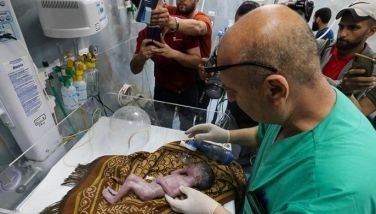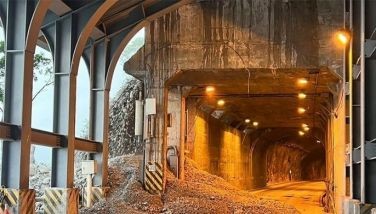UN climate talks deadlocked
LIMA, Peru - Negotiators were struggling to unblock U.N. climate talks late Saturday after developing countries rejected a draft deal they said would allow rich countries to shirk their responsibilities to fight global warming and pay for its impacts.
The main goal for the two-week session in Lima was relatively modest: Reach agreement on what information should go into the pledges that countries submit for a global climate pact expected to be adopted next year in Paris.
But even that became complicated as several developing nations rebelled against a draft decision they said blurred the distinction between what rich and poor countries can be expected to do.
"We have deadlock," Chinese negotiator Liu Zhenmin told the conference, siding with Malaysia and other developing countries that rejected the draft.
US representative Todd Stern said he was open to tweaking the language, but warned against lengthy negotiations, noting that the conference had already passed its scheduled Friday close.
"Failing to produce the decision before us will be seen as a serious breakdown," which could put the Paris agreement and the entire U.N. process at risk, Stern said.
The momentum from last month's joint US-China deal on emissions targets faded quickly in Lima as rifts reopened over who should do what to fight global warming.
Developed countries want the pledges to focus on emissions cuts, while developing nations also want to see commitments of financial support. Some small island states at risk of being flooded by rising seas also complained the draft made no mention of a "loss and damage" mechanism agreed upon in last year's talks in Poland.
"We need a permanent arrangement to help the poorest of the world," said Ian Fry, negotiator for the Pacific Island nation of Tuvalu.
Meanwhile, top carbon polluter China and other major developing countries opposed plans for a review process that would allow the pledges to be compared against one another before Paris.
Peru's foreign minister, who chairs the conference, met with delegation heads late Saturday in an attempt to produce a new draft that all countries could accept.
Bolivian chief negotiator Rene Orellana said most African delegates had already left the conference, and that he, too, had a plane to catch before dawn Sunday.
Though negotiating tactics always play a role, virtually all disputes in the U.N. talks reflect the wider issue of how to divide the burden of fixing the planetary warming that scientists say results from human activity, primarily the burning of oil, coal and natural gas.
Historically, Western nations are the biggest emitters. Currently, most CO2 emissions are coming from developing countries as they grow their economies and lift millions of people out of poverty.
During a brief stop in Lima on Thursday, US Secretary of State John Kerry said fixing the problem was "everyone's responsibility, because it's the net amount of carbon that matters, not each country's share."
According to the U.N.'s scientific panel on climate change, the world can pump out no more than about 1 trillion tons of carbon to have a likely chance of avoiding dangerous levels of warming. It already has spent more than half of that carbon budget as emissions continue to rise, driven by growth in China and other emerging economies.
Scientific reports say climate impacts are already happening and include rising sea levels, intensifying heat waves and shifts in weather patterns causing floods in some areas and droughts in others.
The U.N. weather agency said last week that 2014 could become the hottest year on record.
- Latest
- Trending































